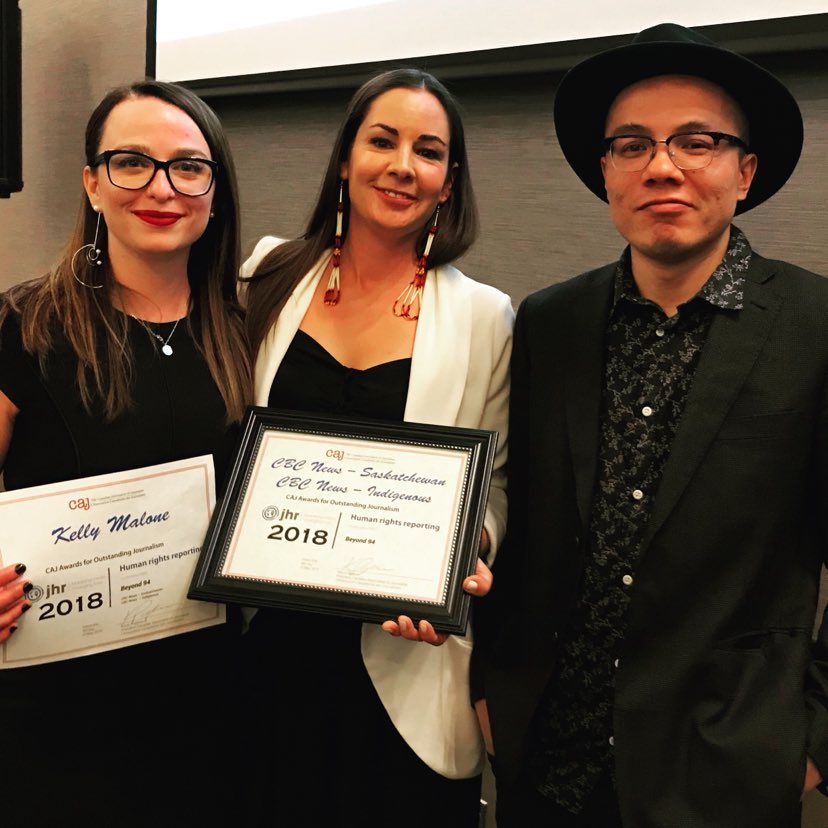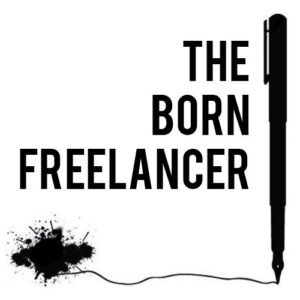Webinar: Find and Win Government Contracts
Join the Canadian Freelance Guild for the first CFG Experts Panel of 2024 and discover how you can navigate the government contracting system to your advantage.
After all, it’s the biggest purchaser of private sector goods and services in the country.
We’ve confirmed two expert CFG panelists who know how to find and get Government of Canada contracts, and a representative from Procurement Canada.
This is bound to be a popular event just two months from the government’s annual year end, when budgets are either spent or returned to the Treasury.
Find out how the system works, how to make it work for you, and whether this is the kind of client you really want.
This webinar is part of the Canadian Freelance Guild’s Business of Freelancing series.
Our Presenters
Marion Soublière is president of M.E.S. Editing and Writing Services (www.meseditingandwriting.com), and a veteran of the communications, journalism and public relations fields.
donalee Moulton is a professional writer based in Halifax, Nova Scotia. But she is also so much more! Animal lover. Business owner. Boss lady.
Dolan Bogus is a procurement lead for Procurement Assistance Canada, and has been working in government procurement for nearly 20 years.
Find and Win Government Contracts
- Online: Wednesday, January 10, 2024
- 6 p.m. to 7 p.m. Eastern Time
- $5 for members
- $20 for non-members
You can register for this webinar right here.
Learn more about the cost and benefits of membership in the CFG on this webpage.
The link to the Zoom webinar will be sent to you via email about half an hour before the start time.
Please check your spam or junk folders if you can’t find the email, and contact organizer@canadianfreelanceguild.ca if you haven’t received the link 10 minutes before the scheduled start time. This webinar will be recorded and posted to the CFG Video-On-Demand site. Once posted, all paid registrants will receive a link and instructions on how to view.
Navigating NaNoWriMo with ADHD: One Freelance Writer’s Experience
This article on one experience with ADHD and NaNoWriMo is written by Becky Zimmer, a freelance writer based in Humboldt, Saskatchewan with experience in farm, community, small business and sports reporting.

Diving into the fray, a fallen soldier became my next point of cover, his weapon loosely….
Diving into the fray, a fallen soldier became my next point of cover, his blaster fallen from his outstretched….
Diving into the fray, a fallen soldier became my next point of cover, his weapon close at hand after……he…………..fell??????
Diving into the fray, a soldier became my next point of cover, his weapon close at hand where he fell.
After 15 minutes of working on this scene, I reached the point where I wanted to quit for some mindless social media scrolling, even though I knew I wouldn’t find solutions for my writer’s block on any Facebook or Instagram feed.
Once I dove down the social media distraction hole, I knew it would be harder to get back to my writing project, and easy to waste 20 minutes there than that same amount of time inching my way through my scene.
Frustration over not having the words for what’s going on in my head is the worst cause of my procrastination
How many times can I use “fall” in this sentence, because I am losing count! It’s the only word I can think of right now to indicate the fallen soldier and his fallen weapon that my protagonist will grab for.
Why can’t I spell the word “soldier” on the first try without needing spell check and autocorrect?
Did I remember to send that email I was going to write an hour ago?
Aww, my dog is so cute.
The five minutes remaining on my Pomodoro timer pulls me back into my Word file and I keep going, nearly getting my heroine out of her latest scrap. When the 10-minute break timer sounds, I hope it will help me do the same and I can inch Augusta 306 further to safety.
This is National Novel Writing Month (NaNoWriMo) in my ADHD brain, and the first one since my diagnosis.
Starting my freelancing career was the biggest reason I sought to, in the words of my 15-year-old self, figure out why my brain is a watercolor painting that’s constantly running.
I remember things feeling off, like I was always on and leaping from one thought to another. Using this analogy to explain my brain to my mother got me nowhere—no doctors appointments or talking with a psychologist—but the vision of a blank canvas that paint never stuck to has stayed with me.
Before my diagnosis, I coasted through my English degree, rarely finishing the assigned reading assignments by the time the final exam hit and never feeling like I completely understood the concepts. Trying to concentrate on textbook readings was a chore, 10 minutes and three pages feeling like hours of work that left me frustrated and unable to focus.
Forget study groups. Unless the tasks were clear and concrete, like a class project, I was the one that talked the most about everything other than the quiz or exam when the only goal was to “study.” At least my journalism degree had clear objectives in mind—interview this person about this subject, go to this event and take photos.
For the most part we weren’t studying abstract concepts or classifications of novels or authors, we were learning hands-on tasks in order to become journalists. For classes like ethics and media law, there was a clear drop in my grades, not because I enjoyed it less or didn’t understand—I understand now that presenting my understanding was just harder to do.
This was my litmus test. The control group. My academic career before intervention or medication
Shortly after starting on Methylphenidate, more commonly called Concerta, I went back for a full semester of classes to complete a Global Studies certificate at my old alma mater. It was night and day. Every assignment was turned in days before the deadline, every reading assignment was completed and understood and my grades saw a measurable jump.
Beyond the academics of being a journalist (researching, writing, editing, etc.), I could focus on a project for longer than 10 minutes, my brain stayed on task without wandering. Medication, therapy and having a name and reason for why my brain acted like a leash to pull me back to the task at hand.
This doesn’t mean my problems are solved. I know what works—things like making lists, setting specific tasks on my Pomodoro timer, specific breaks and work time set and tracked with the help of an app and Habitica, a habit-forming app where I’m rewarded for things like going to bed on time, cleaning my house and, yes, writing. I also have a better idea on what sets me up for failure.
What works is clear goals and dedicated work time to focus on one thing at a time
When it comes to a 1,000-word story about this year’s seeding trends, I know what that finish line of written, edited and filed looks like and I am laser-focused for an hour or two knowing what needs to be done.
When it comes to NaNoWriMo, ambiguous end goals cause me problems. It may be 50,000 words, 1,666 words per day if you can write every day, but I’m also working on plots and characters and possible ideas for book two.
When my brain is trying to work on agriculture stories, communication and media documents for a new capital project and a story about an intergalactic queen’s decoy, it takes time for my brain to switch. I can’t only focus on Augusta 306 for an entire month.
If I can carve out a day for myself where I can focus on having some fun with a fictional tale, I will bang out thousands of words at a time. When I’m also busy being a full-time writer and communicator, those days are hard to find.
So here I am at day four. I am 2,775 words behind, with 1,666 words on the docket for today.
“Diving into the fray, a soldier became my next point of cover, his weapon close at hand where he fell.”
Nailed it.
Do you have a similar experience to Becky’s? We’d love to hear about it, along with your strategies for focusing on your freelance projects. Let us know in the comments, in our Facebook Group, or on our Discord channel!
Emerging from the Dark Ages into the Light and Right
This article on deadnaming and decolonization is written by Nadine Robinson, a freelance writer, professor and keynote speaker based in Sault Ste. Marie, Ontario.

Decolonize your writing and become LGBTQ2S+ friendly
Are you sending your work to editors chipped out on a stone tablet without knowing? If you haven’t upgraded to the 19th edition of the Canadian Press Stylebook you might appear more Neanderthal than you might like. Some important writing style changes have happened since the 18th edition was released in 2017, and regardless of that, there are times to get ahead of CP style.
While not raised reading hieroglyphics, I still grew up with very different terms for Asians, Inuit, First Nations, the LGBTQ community, salespeople, and board chairs, among others. As language evolved, there were growing pains, but I tried to as well. Even if you don’t understand why an old term is suddenly offensive, if that group is saying that it is, that should be reason enough to update our parchment and quills.
Using chosen pronouns and avoiding deadnaming, and decolonizing language and respecting Indigenous worldviews, are two of the most notable changes in the 2021 CP Style edition. How to clearly write about climate change, sexual misconduct, and the ever-evolving language around COVID-19 are also reflected in the 19th edition.
Deadnaming and Pronoun Usage
Back in early 2022, I found myself (as a freelancer) in an email dustup with a staff writer.
The reporter in question had deadnamed a celebrity’s child and used their former pronoun. Since I had passed him the story (and because I felt morally obligated) I asked him to change the pronoun and remove the deadname. He argued that it was factually accurate and that the new pronoun would “confuse readers.”
For background, a transgender or non-binary person’s “deadname” is their birth or given name. It is called a deadname as the name is considered as dead as their former gender identity. “Deadnaming” is when anyone, including the media, uses their birth name instead of their chosen name, without their consent.
Deadnaming can be accidental, like when I didn’t know my friend’s child’s new chosen name. It can also be a lack of emotional intelligence. My trans friends have since explained that it is often seen as an overt or micro aggression delegitimizing their new identity.
So…I suggested alternate wording that would remove the deadname, correct the pronoun, and not affect the context of his excellent article. Even with my well-intentioned overstep, the story ran as it was originally written. To make myself feel better I did some research, and sent it to them for future reference:
- The 18th edition (2017) of the Canadian Press Stylebook reads: “confirm with the person how they wish to be described in print, including their preferred pronouns—male, female or gender-neutral pronouns like they and them”
- The 19th edition (2021), has an important addition on deadnaming: “When writing about someone who has transitioned, avoid using their former name”
- Wikipedia only allows the use of a deadname if the person was notable before the transition (like Jenner)
- The Associated Press updated their stylebook in 2019: “Use the name by which a transgender person now lives. Refer to a previous name, sometimes called a deadname, only if relevant to the story”
- The Trans Journalists Association (TJA), released a style guide in August of 2020, to avoid harmful narratives, which states: “There’s never a reason to publish someone’s deadname in a story”
Decolonizing Your Writing
The 19th Canadian Press Stylebook notes that the word Indigenous should be capitalized. The Indigenous Tourism Association of Canada (ITAC) posted a media style guide asking writers to choose Indigenous Style over Canadian Press Style, including where capitalization may be different.
Here are a few terms that are capitalized under Indigenous style:
- Aboriginal
- First Nations
- Indigenous
- Elder
- Oral Tradition
- Clan
- Protocols
- Traditional Knowledge
- Indigenous Right
- Treaty Right
ITAC’s online guide titled, 12 Ways to Better Choose Our Words When We Write About Indigenous Peoples is to educate writers to avoid historically inaccurate terms and offensive language. Within the recommendations, it notes that the authority on the topic is Elements of Indigenous Style, by Gregory Younging and published by Brush Education.
They recommend that Indigenous Peoples are referred to in the present tense and that the possessive not be used, as they have not been assimilated.
“Avoid the phrase ‘Canada’s First Nations.’ Instead, use ‘Indigenous People in Canada,’ or ‘First Nations, Métis, and Inuit Peoples in Canada.’”
Further, the guide highlights that Indigenous Peoples are not a homogenous group (they have distinct cultures and heritages).
“The Indigenous population in Canada is made up of Inuit, Métis, and some 634 different First Nations.”
Ask for the name of the community or nation if there was no self-declaration.
Also, writers are asked to remember that Oral Tradition and Traditional Knowledge should be considered as holding its own copyright and to ask permission before reprinting them.
As professionals, at a minimum we need to meet Canadian Press Style, but there are times when we need to write ahead of it, even if a few stone tablets get smashed along the way.
How rural community newspapers defy industry challenges and deliver vital stories
This article on community news is written by Becky Zimmer, a freelance writer based in Humboldt, Saskatchewan with experience in farm, community, small business and sports reporting.

In the words of Bob Dylan, the times, they are a-changin’.
This is true for community newspapers as much as any other industry.
But just because papers are getting smaller, coverage areas are getting bigger, staff getting harder to retain, and confidence dropping in the reach of print advertising, this doesn’t mean the stories coming out of rural communities are any less important.
Talking with privately owned papers in rural Canada, they are seeing success in rural reporting for a couple of reasons.
Chris Ashfeild, has been a newspaper man for the last 30 years, and is now a publisher for Grasslands News Group, a company that owns five of the nearly 30 privately owned weekly newspapers in rural Saskatchewan.
Coming from a time when every community had some form of news, no newspaper can survive just covering one community anymore, he said.
“You need more personnel and more staff for that, but unfortunately, the dollars aren’t there to do that. So it doesn’t make it more challenging as far as putting out and getting a newspaper to press nowadays.”
Right now, driving from one side of their coverage area to another is two hours but he is lucky, he said. With good staff, he trusts that they do their jobs well and he can do what he needs to do without needing to pick up the slack in other areas of the office. Being a public figure, he also has time to get out into the community, whether that is on behalf of the business or for himself as a community volunteer.
Staffing goes hand in hand with putting out a well put together newspaper, he said, so you need those boots on the ground in the community.
With his position, he can make those staffing decisions or the most valuable use of his time without needing to appeal to shareholders from two or three provinces over.
“It becomes a totally different ballgame for how you operate a newspaper,” he said.
Daniel Bushman is finding the same thing as the owner and operator of The Watrous Manitou covering the Watrous and Lanigan areas of central Saskatchewan. Great staff and his family are the biggest reason he is able to keep the paper going.
Now in his early 30s, purchasing the newspaper back in 2014 so shocked the Canadian journalism world that he was the subject of a J-Source article for Angela Long’s series on rural reporting.
Working at the paper for years before, Bushman and the paper were fortunate, he said. There was an existing newspaper to buy and he cares enough to keep the paper going for as long as he can.
From making donations, sponsoring events, to just ensuring local coverage, Bushman’s focus is making sure a community that is supporting them is a priority. That mentality is keeping them viable, he said.
“If you pick up the paper and you can read about your family member who’s received a Queen Elizabeth the second Jubilee medal, you’re not going to find that in a different paper. Or if you can read about your daughter’s volleyball team who got a silver medal…the main street revitalization project in Watrous…or the emergency room disruptions in Lanigan and Watrous, you won’t find that somewhere else.”
For many people that “somewhere else” is social media but that has been in theory more than practice.
Not everyone has Facebook, said Bushman, so when people do advertise in the paper, they are often surprised at how well it works.
“I’m not gonna lie, I understand there’s value in the social media aspect of things, but at the same time, I feel like we still have a niche. Placing an ad in the newspaper, I think there’s value there.”

As publisher of the oldest newspaper in Northern Ontario, Alicia McCutcheon didn’t expect to even work as a reporter, let alone take over the Manitoulin Expositor from her father who bought it in the 1970s.
Located on Manitoulin Island on Lake Huron, McCutcheon takes the job seriously as the paper is the foundation for a strong community as well as its history keeper, cheerleader, and champion. Even to the little events that reporters may roll their eyes to cover, everything is important to somebody.
They are in a fairly unique situation being as isolated as they are, she said, but that doesn’t make the job any less important.
“We like to joke that we have a captive audience, so that’s kind of helpful, I guess, a little bit. But the community support has been very good.”
Demographics are shifting with more people moving to the area from bigger centres. Newspapers, including free ones that couldn’t penetrate the markets of Toronto, are a novel thing to newly arrived urbanites who are giving rural life a try and McCutcheon questions the integrity of the product in that case. However, she does admit that the Expositor’s subscription sales have also declined at an alarming rate in recent years, but they are also capitalizing on this online shift by introducing a paywall for their award winning website.
Members of the community haven’t complained, she said, as she trusts the quality of her newspaper. Both readers and advertisers notice the hard work that goes into it week after week.
Professionalism, respect, and self-care: the tightrope walk of trauma reporting
This article on trauma reporting is written by Becky Zimmer, a freelance writer based in Humboldt, Saskatchewan with experience in farm, community, small business and sports reporting.
When tragedy happens, journalists have the awful and difficult job of telling the story, often being the boots on the ground surrounded by death, destruction, and grieving loved ones.
And there is always the chance of doing more harm than good.
When these tragedies happen, The Canadian Press sends Kelly Malone, but after 15 years of reporting on traumatic events, the Prince Albert-born reporter has learned a few things but still has questions.

When she first started out, she knew very little about covering tragic situations, like how to take care of herself or the person in front of her, but she hopes that people remember the 20-year-old version of her as someone who was always respectful
“I might not remember them in 10 years, but they will always remember me.”
That is our job, she said, “writing the first draft of history.” The best way for journalists to do that is to be empathetic, respectful, honest, and a willing witness to what is going on. Journalists should want to listen to this person and get their story because theirs is an important story to tell, she said, not because the story will advance their careers.
As a journalist, that can be difficult. The person behind the headline, the story of what they went through, will impact someone’s career, and there is guilt in that, she said.
The biggest advice Malone can give to all journalists is to check their mindset. They are there because the story is worth telling, but they aren’t entitled to an interview, let alone all the horrible details of a person’s trauma, she said.
“If I’m walking into a tragic situation or I’m standing outside of the courthouse, I can ask for it, but I do not deserve it. I think changing that mindset, I walk into the role more respectful and also people push back on me, I’m more understanding of why.”
While she had to learn a lot of these lessons the hard way, covering these events have helped her think outside the box in a lot of ways. When the focus is on one key individual, other people are often forgotten or missed completely. Malone recalls Debbie Baptiste’s frustration with the media following the death of her son, Colten Boshie, and the conclusion of the Gerald Stanley trial. Malone had spoken with Baptiste quite often already, and by that time, rightfully so, Colten’s family were giving very little to the many reporters that called. Malone saw little value in adding to that family’s stress and pain by adding herself to that list of callers.
After a few phone calls to First Nation communities in both Canada and the US looking for former teachers of Colten’s, Malone tracked down his father who was unable to enter Canada and be with the family after his son was killed. To this day, Malone is unaware of anyone else who interviewed Pete Boushie.
“I think his dad really wanted to speak, he just had not been contacted and didn’t know who to talk to.”
To this day, Malone has remained in contact with Pete and Pete’s mother.

Besides being a decent human on what is someone’s worst day of their lives, Malone said she also have better conversations with people when they know the journalist in front of them actually cares about their situation.
Criticism and discussion on the media in times of fake news and digital media are warranted, but good journalism is still needed, she said. Journalists need to be in these situations, but professionalism needs to come first.
“We are the person there as the journalist to tell the stories, to be professional. When we go home, we might want to cry and we might need to talk to our bosses and ask for support, for time or mental health support.”
Malone’s trip to Humboldt was her first difficult story with The Canadian Press. Sixteen people died and another 13 survived with life changing physical and mental trauma after a semi collided with a charter bus carrying the Humboldt Broncos junior hockey players and staff to a playoff game in Nipawin, Saskatchewan.

The families of the 29 people, numerous Saskatchewan communities, and the police, paramedics, firefighters, and mental health professionals were deeply impacted in the hours, days, and months that followed. Many journalists were impacted as well; including CBC’s Susan Ormiston who reflected on Humboldt for a 2018 year in review clip.
Before she landed back in Winnipeg after being in Humboldt, Malone had a list of mental health supports waiting for her in her inbox.
Just like anyone else impacted by events like this, journalists need to take care of themselves, said Malone, and part of that is looking for those supports and talking about what they need, whether that is with their organization or, for freelancers, with their clients. Before going into hard hit communities, Malone now puts a lot of prior planning into what support she’ll need when she gets back.
Trauma Informed Journalism
- International Women’s Media Foundation
- 2021 Dart Awards: Reporting Tips from the Honorees
- Dart Center Style Guide for Trauma-Informed Journalism
- Decolonizing Journalism: A Guide to Reporting in Indigenous Communities by Duncan McCue
Yes, freelancers can throw themselves a summer party. Here’s how.
This article is written by Vanessa Chiasson, a freelance writer based in Ottawa who specializes in travel and human interest stories.

The first time I threw myself a business party, I didn’t go all out. In fact, my entire expenditure was about seven dollars, the cost of a latte and a Christmas sugar cookie. It was a humble celebration but also a proud moment. I was my own boss and didn’t need anyone to foot the bill for my soiree.
Since then, my budget has increased, but the quiet pride I felt during my first “party” has never changed. I loved it so much that I’ve added a second yearly event—a summer party! And I think all freelancers should do the same.
Summer parties have long been a corporate tradition. Annual company picnics, Canada Day barbeques, and softball tournaments are time-honoured practices in the business world. Why should it be any different for freelancers? Why shouldn’t we celebrate our accomplishments, quarterly reports, and new contracts?
Structuring a summer party can be challenging when your office consists of just one person and your budget is limited. Not many of us can manage to throw a beach-side bash with fireworks! But that doesn’t mean a more modest celebration isn’t as meaningful. Here are some ideas to consider.
Take A Day For Simple Pleasures
Designate a day as your official summer party and block off your calendar. Devote your day to enjoying simple pleasures, like a picnic in the park, an afternoon at the movies, or (taking a page from my playbook) a fancy coffee, cookie, and quality time in a bookstore. Your summer party doesn’t have to be big or loud to be fantastic. Snap frequent photos to capture your day in all its idle glory.
Celebrate With Colleagues
As Rebecca Seal, author of Solo, says: “Repeatedly telling ourselves that because we work by ourselves, we are alone, does no good.” There may be more freelancers than you realize in your community. Put the call out that you’re looking to turn your solo party into a group event, and suddenly you have a full-blown “company barbeque” at the local smokehouse.
You may just find yourself hosting an annual event.
Throw A Block Party. Really!
Why shouldn’t freelancers throw a neighbourhood-wide bash? You don’t have to be much of a baker to turn cake mix, frosting, and sprinkles into amazing Canada Day cupcakes—and memories. Sharing your success with your community is a rewarding thing. According to Jane Porter, founder and facilitator of Bridge Building Group
Connections matter. It’s lonely enough sometimes as a solo-entrepreneur to do the work on one’s own – but at the end of the day, celebrating wins with others is shared joy and a great way to connect meaningfully with others.
Save Your Receipts
Yes, your summer party is tax deductible. While 50% is the standard tax deduction for food, beverages, and entertainment, the Canada Revenue Agency states that these limits do not apply when:
You incur meal and entertainment expenses for an office party or similar event, and you invite all your employees from a particular location. The limit is six such events per year.
That’s right. The government not only expects you to have an office party. They expect you to have a lot! As such, save receipts, document the experience, and make your country proud.
The Born Freelancer on Why We Do What We Do
This series of posts by the Born Freelancer shares personal experiences and thoughts on issues relevant to freelancers. Have something to add to the conversation? We’d love to hear from you in the comments.

Why do we do what we do? And why do we keep on doing it?
Making a living, of course, is a top priority. Get two or more freelancers together and the first topics of conversation will always be (1) how to increase our fees and (2) how to get paid on time.
I’m talking more about what we want to achieve. And why we keep on doing what we do.
Accuracy and truth play into it. Trying to capture a slice of life, good or bad, and persevering to reveal and share something of its essential nature are definitely a part of it.
There must be also something about it that strongly motivates us—for there are far easier ways to make a living.
I’ve thought long and hard about why I have continued to do what I do. The answer remained an elusive mysterious element “x” that I could not put a name to.
That all changed when I heard two simple words.
My “eureka!” moment
Some time ago I was speaking with a visual artist about his latest abstract painting. I asked what it was all about. “Capturing magic” was all he would say by way of an explanation.
What he said caused a chill to run down my spine. It resonated deeply: in that instant I knew that I too was trying to capture magic in my work. And as I thought more about it I realized the process of my work itself also provided some of the magic in my life.
Magic as metaphor
We creative workers take a blank screen or canvas or time on the airwaves and fill it full of content where none before had existed.
It’s like a magician pulling a rabbit out of their hat.
It may be highly subjective but I think we all know when we’ve achieved or come close to capturing what I am now choosing to call magic. Our work feels unusually satisfying and our objectives have all been reached. Indeed perhaps we’ve even achieved something far beyond our original objectives. (The overall impact of any such work being greater than the sum of its parts.) We’ve used our skills and talents to their utmost to bring something new and fresh into existence that defied and challenged us in the first place to do so. It cuts through the noise and chatter and draws attention to itself by its uniqueness and perspective. It may enlighten or move or amuse or anger but it ultimately connects with its audience. It may even inspire.
I call that capturing magic.
We know too when we’ve failed to reach it. Our work, while perfectly serviceable, lacks something. It may lack an indefinable sparkle or added element that makes it stand out amongst its competitors, that indefinable yet very tangible blessing of the muses. As such it just adds to the background noise of our cluttered and noisy information world. It sits there and does no more than it is asked to do.
I call that lacking magic.
We can recognize it in other’s work too. We know it when we see/hear/read it. It is perfection or near perfection, the right elements are all there and we are left feeling transported to a better place (albeit temporarily) having experienced it. It gives more than it was ever expected to give.
As an example: I was rereading a collection of short columns collected in book form written by the late freelancer Arthur Black. I’ve written about him on this website. What I had forgotten was how full of magic his work was—each column fun to read but also perfectly worded, effortlessly full of insight and truth and humanity. I was left feeling elated, and amused but also somehow more thoughtful about topics he raised. His words connected with me deeply in ways I still cannot fully understand or articulate.
I call that capturing magic.
More about capturing so-called magic
For each of us it will be slightly different.
Perhaps the word “magic” puts you off. Too artsy-fartsy? It did me too until I surrendered to it. Now I can think of no better word to describe what it is I try to capture and present to the world in my work. And it also describes my motivation to stay at it—I want to keep feeling that feeling again and again!
So it seems there are two kinds of (related) magic for us creative workers. There’s the magic that’s out there in the world (or in our heads) that we try to capture in our work and hope to expand upon and share with others – and the magic we ourselves feel in the process of creating that work (when it goes well). Both require the benediction of the muses. (I’ve mused about the muses elsewhere on this site.)
Remember what it was that drew you to your work in the first place? That was when the magic first began.
Probably you were a kid. You read something that stuck with you, something that made you want to pick up a pen or keyboard. Or you saw a TV show that made you think, I want to do that too. In my case I visited a radio station when I was a youngster and decided that that was to be (in part) the life for me.
That magic you felt was something that resonated deeply within you. It erupted a spark of life that perhaps had not existed before or you were not previously aware of. But when you later started the process of your work you felt it again, charging you up, connecting you to the world and making you feel more fully alive.
You had met your muses.
That’s the magic that keeps me motivated to keep on doing what I do. Maybe it is for you too. Or have you lost it? Does your work not excite you any longer? Try to remember what you first felt that drew you to your work. Trust your instincts and you’ll regain the feelings of magic you once had.
Now I have identified it, it is easier for me to recognize when I fail capture it. The process itself usually is a giveaway. Perhaps the idea wasn’t so good or maybe my execution failed. Or maybe I had failed to appease the ethereal muses who ultimately decree what is magic and what is not. Nevertheless I try to capture a bit of magic in everything I create. I don’t always succeed. In fact, I frequently fail. But it doesn’t stop me trying—again and again and again.
The takeaway
Since meeting that visual artist I have realized that my desire to capture magic with my work is just an extension of a subconscious wish to find the magic in life. Whether it’s a beautiful sunset or a stirring tale of humanity where none was expected, I know it’s out there. It’s up to me to stop, identify and quietly appreciate it.
I posit that our duty as creative workers is to thereafter reconstitute and recapture the essence of those feelings of that experience through our work. (If not we creative workers, then who?) If I do it right, and if I have the support of the muses, there will be just a little more magic in the world for others… and through the process, for me too.
I don’t know about you but that’s why I do what I do…and keep on doing it.
May I wish you a productive and magic-filled summer!
AI innovation and education: how to navigate learning and teaching
This article on AI and what it means for education is written by Becky Zimmer, a freelance writer based in Humboldt, Saskatchewan with experience in farm, community, small business and sports reporting.

Historically, technological shifts have always disturbed the familiar and usual.
According to educational insiders, the technological development in AI is posing the biggest threat to the world of post-secondary education.
When Darren Hicks stumbled onto his first case of an AI written essay in the fall semester of 2022, there wasn’t much he could have done to prove with 100 per cent certainty the student had not written the two essays themselves.
The 500-word essay on Hume and the paradox of horror looked well written, but reading deeper into the structure and arguments, it made very little sense to someone who actually knew about the writings of Hume. If the assistant professor of philosophy at Furman University in Greenville, South Carolina hadn’t caught a whiff of AI generation, Hicks said he would have passed the student, but he and the institution still counted it as a form of academic dishonesty. This was different from a traditionally plagiarized essay, said Hicks, but without the student actually admitting to using AI generation, he wouldn’t have had a leg to stand on reporting the student to the academic board.
“A plagiarized essay just screams its nature. It says, I am a piece of crap. This one didn’t. This one was confidently written, it was cleanly written, it really believed it knew what it knew.”
Plagiarism has always been a concern in the realm of education and professors know what to look for. Hicks doesn’t see AI increasing the number of plagiarists in the world of academia, but plagiarism is not the conversation we should be having. It’s about more than just academic dishonesty, said Hicks, and he likes to think that most students are in university to learn and get an education. An essay gets at what it means to be fundamentally human, but it is getting harder and harder to prove that lack of human creation. Besides the practical argument that AI just gets things wrong, the bigger question for students should be why they are getting an education in the first place.
“It does raise just fundamental questions about what education is,” said Hicks. “Why are we doing it? What does it mean to be human? The huge questions…if you are (at university) to learn, if you’re in this class, because you’re interested in the material, then it defeats that purpose to use AI to do this stuff.”
As AI development continues, we won’t be signing any global contracts to stop it anytime soon. With that in mind, we shouldn’t be afraid of using it, said Hicks.
“Let’s find a way to work this thing into the classroom. I give the student credit, she already knew about this technology, which is pretty good. It’s her bad luck that I knew about it, too, and was a step ahead.”
Given his area of research is also in educational technology media, Alec Couros, director for the Centre for Teaching and Learning, is heavily invested in the use of AI in the classroom. He develops programming to teach University of Regina professors how to use technology within the classrooms, but also speaks with his grad students about what works for them and what doesn’t from a teaching perspective. Much to the dismay of high school teachers, Couros also shows high school students how to use AI. Couros is OK with forcing that conversation, he said, since this technology will just continue to advance, not disappearing if people simply ignore it.
“We need to better communicate what it is, what we think is appropriate, and also make it quite clear, this is not just about academic misconduct, it’s about your own learning. If you don’t learn to do certain things, it’s not going to benefit you in the long run.”
Just like we mentioned in the first story, there are limitations to what AI can do. It takes skill to clearly write the AI inquiry. That itself is a learning experience, said Couros. Asking for proper citations can be done, but again, only if the inquiry is clear. It won’t be perfect, but students need to understand that AI is a good place to start but is not the be all and end all. If they’re using AI as the final result, they are going to have some problems.
From a utopian lens, more and more AI is replacing those menial, unimportant cognitive tasks within academia and many see it opening doors for academics to shift their focus to critical thinking, collaboration, comprehension, and creativity.
However, with this utopianism also comes a sense of foreboding for the future of education, Couros said, and we can’t continue down the path we are currently on without addressing concerns in AI development.
This is the second in a three-part series on AI in the world of writing, including the first part on AI in journalism. Our last one will look into the impending future as AI continues to develop with some notable people starting to note their distrust.
Stay-at-home retreat: a freelancer’s guide to crafting the perfect staycation
This article is written by Vanessa Chiasson, a freelance writer based in Ottawa who specializes in travel and human interest stories.
As a travel writer, I often say that I need a vacation. People think I’m kidding around (“Didn’t you just get back from somewhere?”), but I’m not looking for another flight. I simply want a break to benefit my health and happiness. That’s why I design a frugal, flexible summer staycation and I want more freelancers to do the same.

7 ways freelancers can plan a staycation
What should a freelancer do during their staycation for maximum rejuvenation? In her book Solo, Rebecca Seal says:, “The best evidence suggests we need a mixture of things. Quiet time, in which our minds can wander (and wonder). Some physical relaxation and some physical engagement. Exercise and rest. And the same for our brains—exercise and engagement, but in ways which are nothing to do with work.”
With her words in mind, here are some easy, accessible, enjoyable ways to embrace staycation life.
Resort-i-fy your bedroom
Every freelancer deserves a luxurious retreat that’s all their own. Making your bedroom feel more like a hotel is a beautiful way to launch your vacation. Clear some clutter and embark on a deep clean. Rearrange your furniture or artwork, add fresh flowers, and treat yourself to a fancy candle.
Enjoy a day of opposites
There’s nothing like a vacation to get yourself out of a rut. Plan a day of opposites to embrace this sense that anything is possible. If you never have breakfast, it’s time to go full English. Instead of coffee, choose tea. Grab a different bus, walk a new route, and select alternative brand names when you’re at the market.
Recreate a childhood memory
What did you love doing more than anything else as a kid? Growing up in Nova Scotia, my idea of summer bliss was a trip to the “ice cream barn,” followed by a late night of reading with the flashlight. And I still love this! Many childhood activities, like browsing a toy store, eating giant donuts, and binging cartoons offer easy staycation fun.
Embrace a day of guilty pleasures
The demands of deadlines often make the most innocent indulgences feel verboten for freelancers. During vacation, why not make a day of it? Sleep late, stay in pyjamas all day, watch movies in the bathtub, eat the fettuccine alfredo AND the chocolate cake, and go to bed at 9 p.m.:00 PM or 3:00 a.m. AM.
Have some fun in the sun
Every year, I sustain myself through the brutal winter with thoughts of sun-kissed summer afternoons, conveniently forgetting what July humidity does to my hair. Still, I never regret trying to have some fun in the sun. Go to the beach. Get dressed up and enjoy swanky cocktails on a rooftop bar. Take in a ball game.
Clear your to-do list
For better or worse, vacation has become the non-work time where you get domestic work done. While it’s annoying to spend a precious free day tackling odds and ends, chances are you’ll be tremendously satisfied after devoting some time to your home and yourself. Assemble that bookshelf, trim your hair, and dig in the garden.
Record your vacation for posterity
It is one hell of an achievement to be a working freelancer and even more so to prioritize yourself and your well-being. Your staycation isn’t just a thrifty vacation. It’s a celebration of everything you’ve accomplished this year. So take photos, buy a small souvenir, and decorate your office with postcards to remind yourself how much you’ll love doing this again next year (or sooner!)
More from Story Board
The Born Freelancer on Imposter Syndrome
This series of posts by the Born Freelancer shares personal experiences and thoughts on issues relevant to freelancers. Have something to add to the conversation? We’d love to hear from you in the comments.

Freelance writers and imposter syndrome
I’ve read a lot recently about the many different types of people who experience “imposter syndrome”—the feeling that they don’t truly deserve or have the right to the success they have achieved. It might be fleeting and occasional or consistent and ever-present.
Freelancers, as a group, might be particularly susceptible to it.
Almost every freelancer I know has confided in me that they have felt like a complete imposter at some time or another.
I have too.
Why would we feel this way?
- Freelancers constantly face rejection and criticism
Although in time we may build up a defensive armour, over the long haul they still can inflict a negative impact. They can continue to subconsciously undermine our sense of self-worth and self-confidence even as our careers substantially improve. - Freelancers know we frequently rely on timing and good luck in the advancement of our careers
The introspective freelancer is acutely aware of this and may give it far greater weight than it deserves, ignoring their hard work and natural talent. - The typical resume of a freelancer may look impressive but we know its elements often only came together at the last moment and despite severe provocations
Looking it over we may feel it is a fraudulent document as it only lists our successes—and not our many, many failures. - Freelancers scramble for work every day
This constant battle to keep afloat can imprint itself so deeply that even when finally successful the impulse is to keep scrambling. Such feelings of perpetual career instability (real or imagined) hardly feels like the stuff worthy of praise or accolades. - Each freelancer has a career arc uniquely their own, which often appears to break all the established rules of conventional employment
It may feel like a house of cards ready to fall at any time.
How can we alleviate it?
- Learn to genuinely and humbly accept who we are and what we do
- Accept that what we do can be good and valuable and appreciated
- Understand that feelings of unworthiness are irrational and unsupported by facts but that almost everyone has them now and then
- When confronted with acclamation and praise, we must learn to accept them with the same internal calmness and resoluteness with which we must also accept criticism and rejection. We should not take either too seriously
- We must separate ourselves from our work just enough so that our self-esteem and self-confidence are not constantly fluctuating with the success or rejection of our work. Family and friends are our most important sources of support
- We must truly believe that feeling like an imposter is ridiculous and absurd (unless you really are an imposter!)
My worst experience of “imposter syndrome”
I was, once upon a time, working for a popular television outlet albeit as a lowly junior freelance writer. I heard that there was to be a big party to launch a brand new show with a young rising star. More importantly there would be lots of free food and drinks. Trust me, to a young struggling freelancer, it was the availability of free food and drinks that made me decide to attend.
So I went along to a fancy hotel ballroom and was granted admission. As I surveyed the crowded room I was immediately panicked. Everyone seemed at ease and comfortably chatting, laughing and boasting loudly about their work. I didn’t know anyone and I felt a complete fraud. What right did I have to be there?
It was, looking back on it, my worst experience in which I felt the extreme depths of depression and despair caused by “imposter syndrome.”
That is, until I spotted a nervous-looking woman standing all by herself near the food table. A kindred soul? I hesitatingly started up a conversation and much to my relief she seemed happy to chat. We quickly agreed it was an awful party, that neither of us knew anyone, that everyone else seemed to be happy and confident and that we both felt like fakes and imposters.
It felt wonderful to know I wasn’t the only one there who felt out of their depth and like a complete fraud. Belatedly I asked her name and what she did.
She looked at me quizzically and then smiled.
It turned out…the party was for her and her new show. She was, in fact, the “young rising star” who was to go on to much critical acclaim and success.
But all that was in her future. At that exact moment, she Inexplicably felt the same way I did.
The takeaway
Looking back, all these years later, I realize probably almost everybody at that party felt like a fraud. It’s just that they were better at hiding it and pretending they didn’t feel it. Perhaps that is another way to combat it.
As for me, I felt unexpectedly empowered that day. If a “young rising star” could feel the same way I did, then somehow I instinctively realized “imposter syndrome” (as we now call it) was something so irrational, so absurd and so ridiculous I could no longer allow it to have any sway over me.
To this day, if I ever catch myself starting to feel like an imposter at any time under any circumstances I just remember that party and the perspective it ultimately gave me. The feeling soon subsides.
If you too occasionally feel it, I hope you now know you are not alone. And that it can be overcome and/or successfully managed.
Although not an officially recognized psychiatric disorder, “imposter syndrome” can also become debilitating for some sufferers. Should you find it continuously undermining your work—or any other aspects of your life—you may want to seek professional counselling.
What about you? Ever felt like an imposter, professionally? Why? What did you do to alleviate your feelings? Let us know using the comments feature below.




